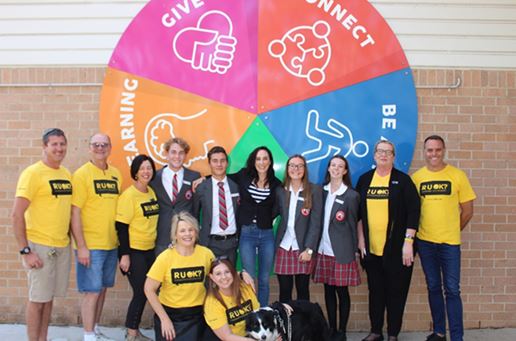
As we enter the second half of what has been an historic and extraordinary year, the dizzying changes that educators have had to manage show that professional learning and change management are more important than ever.
On 25 June, The Educator Leaders’ Summit 2020 will bring together education leaders from across the sector, allowing them to access the latest insights and best practices in schools, and helping them tackle these challenges, and many more.
Speakers at the event include: Samantha Rangaiya, Deputy Principal of Briar Road Public School (Finalist of Best Student Wellbeing Program 2019 at the Australian Education Awards); Andrew Kelly, Principal of Redeemer Lutheran School (Winner of Innovation in Learning Environment Design 2019 at the Australian Education Awards) and Derek Scott, Principal of Haileybury (Winner of School Principal of the Year - Non-Government at the Australian Education Awards 2019), among many others.
Another speaker at the Summit will be Mount View High School principal Desley Pfeffer. Last year, Pfeffer won “Best Student Wellbeing Program” at the Australian Education Awards 2019 in recognition of the school’s Five Ways to Wellbeing framework.
At the Summit, Pfeffer will be speaking on the Panel: ‘Inside Australia’s best student wellbeing programs’ and sharing insights from her school’s award-winning practices in this area.
“For Mount View High School, it has reinforced the importance of working proactively and of having a common, shared language through which we promote the importance of wellbeing and mental health,” Pfeffer told The Educator.
“I believe that for many staff, students and their families, the fact that we have been building our school community’s knowledge of wellbeing so actively over the years preceding COVID-19 has enabled them to feel assured that the school is able to respond appropriately and that we can work together to respond to the complexity of the pandemic”.
Pfeffer said that whilst we may not have actually given voice to it, the broader concepts of hope, resilience and self and shared responsibility for wellbeing have been key to addressing fears and anxiety around the pandemic.
“I truly believe that the sense of security and reassurance built through a very strong, well-communicated and resourced focus on wellbeing has been key in overcoming some of the complexity of mental health concerns that have arisen as a result of COVID-19,” she said.
“Staff wellbeing initiatives that go deeper than tokenistic and surface-level approaches have also helped our staff to be resilient and to provide support for our students”.
Instilling ‘positive wellbeing’
Pfeffer says having an effective and successful wellbeing program comes back to purpose and the underlying beliefs and commitment.
“At the most fundamental level, moving our focus on wellbeing to EQUAL standing as teaching and learning has been crucial,” she explained.
“The question shouldn’t be: ‘Which is more important – curriculum or wellbeing?’ but rather: ‘Why can’t they be equally important?’”
Pfeffer said that while this took some time to work through with the school community, it resulted in a new vision statement and a commitment of funding, strategic planning and resourcing.
“Positive wellbeing has been the first of three strategic directions in our school plan for six years,” she said.
“Key to our initial success was the identification of a wellbeing framework that works for us, that is relatable to our context”.
After a period of exploration, the school chose the Five Ways to Wellbeing (NEF, UK) and spent considerable time building its own knowledge and expertise in the framework before it was introduced to the students.
“We also built a sense of mystery and expectation around the release of the framework to students,” she said.
“The end result is a shared language through which we could support wellbeing”.
The agenda for the Educator Leaders Summit 2020 can be accessed here.


